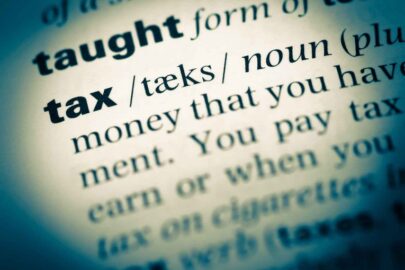The Council of Mortgage Lenders (CML) says that recent YouGov Reports survey data suggests mortgaged buy-to-let landlords are fairly well informed of new tax and regulatory measures and, in many cases, are finding ways to weather the impact.
The YouGov survey follows publication late last year of the CML’s own research into private sector landlords. This found that landlords were taking a long-term view of their property investments, although the researchers found that those at the most professional end of the spectrum – those with large, leveraged portfolios – were likely to be most affected by the government’s tax changes.
YouGov’s survey of 925 mortgaged buy-to-let landlords was conducted during December and January, and is the largest and most recently polled sample of such a group.
2015 came the announcement that the ability to deduct mortgage interest would be gradually phased down for landlords – meaning that, by 2020, only 20% of any landlord’s mortgage interest would be tax-deductible.
Over two-thirds of those polled confirmed that they were aware of this change, and most of these saw it as detrimental to their business. High-income landlords were more likely to be anticipating it, with over 80% of those earning more than £100,000 per year reporting awareness of the measure.
Overall, about 30% of those polled said the changes would not affect them and there are several reasons why a landlord might be unaffected by the changes. For example, if you operate your lettings through a corporate structure, fall below the threshold for paying income tax, transfer the property to a spouse who does not pay tax, or do not take advantage of mortgage interest relief in the first place, the changes would not affect you.
The CML said that given that around one-third of survey respondents declared themselves as higher-rate taxpayers, it is likely that most landlords who will be affected by the tax change are already planning how they will mitigate the impact of reduced mortgage interest relief.
Respondents were asked what steps they would take to alleviate the impact of higher tax bills. Raising rent was the most commonly cited plan, with 19% saying they would definitely do this, and 5% saying they had already done so. About one in four intend to undertake more frequent rent reviews.
Landlords also have recourse to other tax-reducing measures which would not feed through to tenants. About one in five landlords are considering either transferring property ownership into a corporate structure or to a partner who pays a lower income tax rate. About one-third are looking into remortgaging as a cost-saving option.
Since January, the PRA has required that new buy-to-let mortgage applications be subject to a stressed interest cover ratio (ICR) test, to ensure borrowers can continue to service payments in the event of an interest rate increase.
Only 45% of the landlords sampled by YouGov were aware of these new requirements. More generally, the survey suggests that higher interest rates are not an issue that concerns landlords, the CML said. Nearly 80% of respondents said they could manage an interest rate increase of 1.5 percentage points over the next three years.
74% reported that it was easy or very easy to afford their mortgage repayments, indicating that most have already built in a buffer to militate against adverse conditions. However, this buffer may later be absorbed by the increased tax bill that many will face.
From September 2017, the PRA will also require borrowers applying for their fourth or subsequent buy-to-let mortgage to pass additional affordability assessments. Some 22% of respondents said they had three or more mortgages, meaning that these individuals would be caught out by the new rule if they decided to borrow to expand their portfolio. On the plus side, lenders are being given discretion on how to implement this requirement, so it is hard to say the extent to which this new rule will be a market-shifting event.
About 70% of buy-to-let landlords were aware of additional stamp duty for second and subsequent homes, which was introduced last year. This is the least complicated of the new tax measures, and there is only one way for landlords to avoid it – and that is to stop buying additional properties. About one in four of those surveyed admitted that the combination of the stamp duty measure and other reforms has caused them to stop expanding their portfolio altogether.
The combination of tax and regulatory changes has produced a slightly negative investment climate for buy-to-let landlords. 23% of respondents reported business expectations in the next two years as good or very good, compared to 27% reporting them bad or very bad. On the whole, landlords have a broad range of coping strategies, and are at different stages of implementing these.
Only one in 10 buy-to-let landlords reported that they would exit the letting market entirely as a consequence of the new changes. These respondents are fairly evenly spread in terms of geography, so it is unlikely that any particular rental market will be severely disrupted, the CML said.
